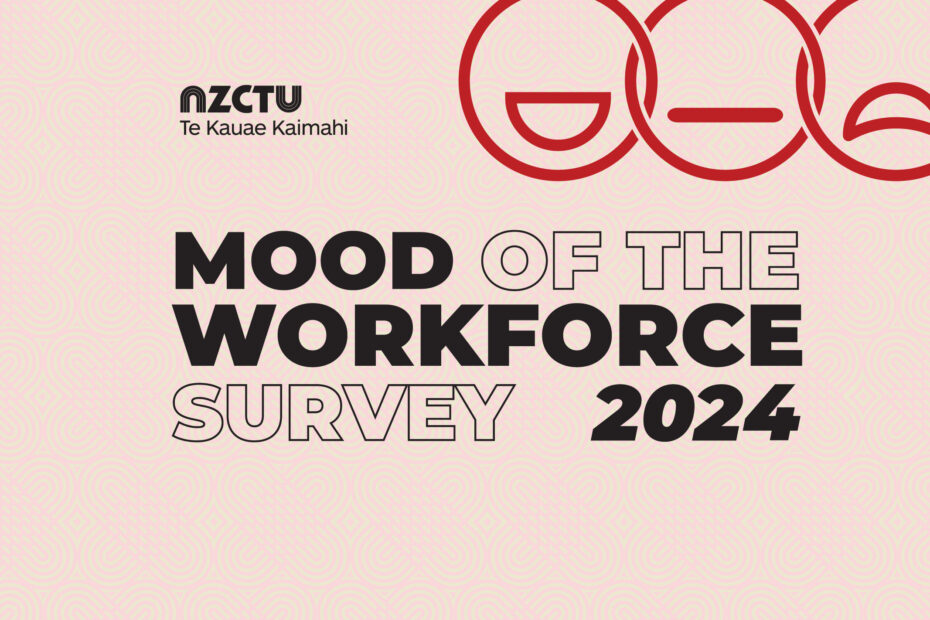In the first week of every year since 2019, we have asked working people to talk about their experiences of work over the past 12 months, and what their thoughts are on issues likely to impact their work and lives in the future.
We do this because we think the voice of working people must be heard and taken into account by decision-makers. Too often the voices that are collated and published are those from the boardroom or from employers. Without the voice of working people provided by this survey, and unions more broadly, we are limited to knowing how confident business owners feel or what a handful of high-profile directors think. Consequently, when only part of the economic story is heard, fair and inclusive decisions – good decisions – are less likely to be made.
This year, the biggest changes to work issues are the result of the new Government. Their 100-day plan makes substantial changes to employment law that will have far-reaching and negative implications for working New Zealanders.
That’s why this year we asked people about their thoughts on the new Government and its leaders and what impact this change would have on New Zealander’s work lives. Just under 2000 people responded within seven days of opening the survey.
The results were overwhelmingly pessimistic:
- 80% of respondents said that the performance of the new government was bad or very bad
- 70% of respondents said that the new government’s policies would make it more difficult to meet the cost of living over the next 12 months.
- 53% of respondents said that the new government’s policies would make their job security worse.
- Many comments from participants identified economic and/or societal divisiveness. They expressed ideas such as the new government “only cares about high-income workers not low-income”, that it “is working for donors not the rest of us”, and that its policies “will increase inequality”.
- 10% of comments provided described the government as racist or pandering to racists/racial division
- The sentiment “the government is taking NZ backwards” appeared in 140 comments.
Year on year, the picture painted by the workforce survey has been of one of people struggling to maintain their living standards and their rights at work. Breaking the statistics down into union and non-union cohorts shows that union members have done better at securing their terms and conditions, including being more likely to report a pay rise in the past year by 20%.
It is clear that working people believe things need to change. Not just in terms of the current government, but across the political/economic consensus. Many commenters identified that while they felt small improvements in the last year, they still felt like they were slipping behind. Others noted how little real change there was on offer during the last election.
The status quo has not been meeting the needs of working New Zealanders for many years, and the hasty and unevidenced repealing of Fair Pay Agreements, combined with the reintroduction of the 90-day dismissals period, has signalled to working people that this is a government determined to eliminate the few economic gains working people might have made.
Results
Questions about the perceived impact of the coalition government
Views on government ministers
We asked the participants what their views of the performance to date was of the Prime Minister, Deputy PM, Deputy PM in waiting, Finance Minister and Workplace Relations Minister.
